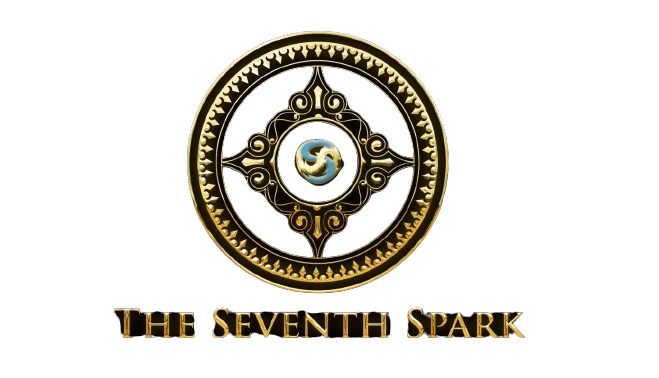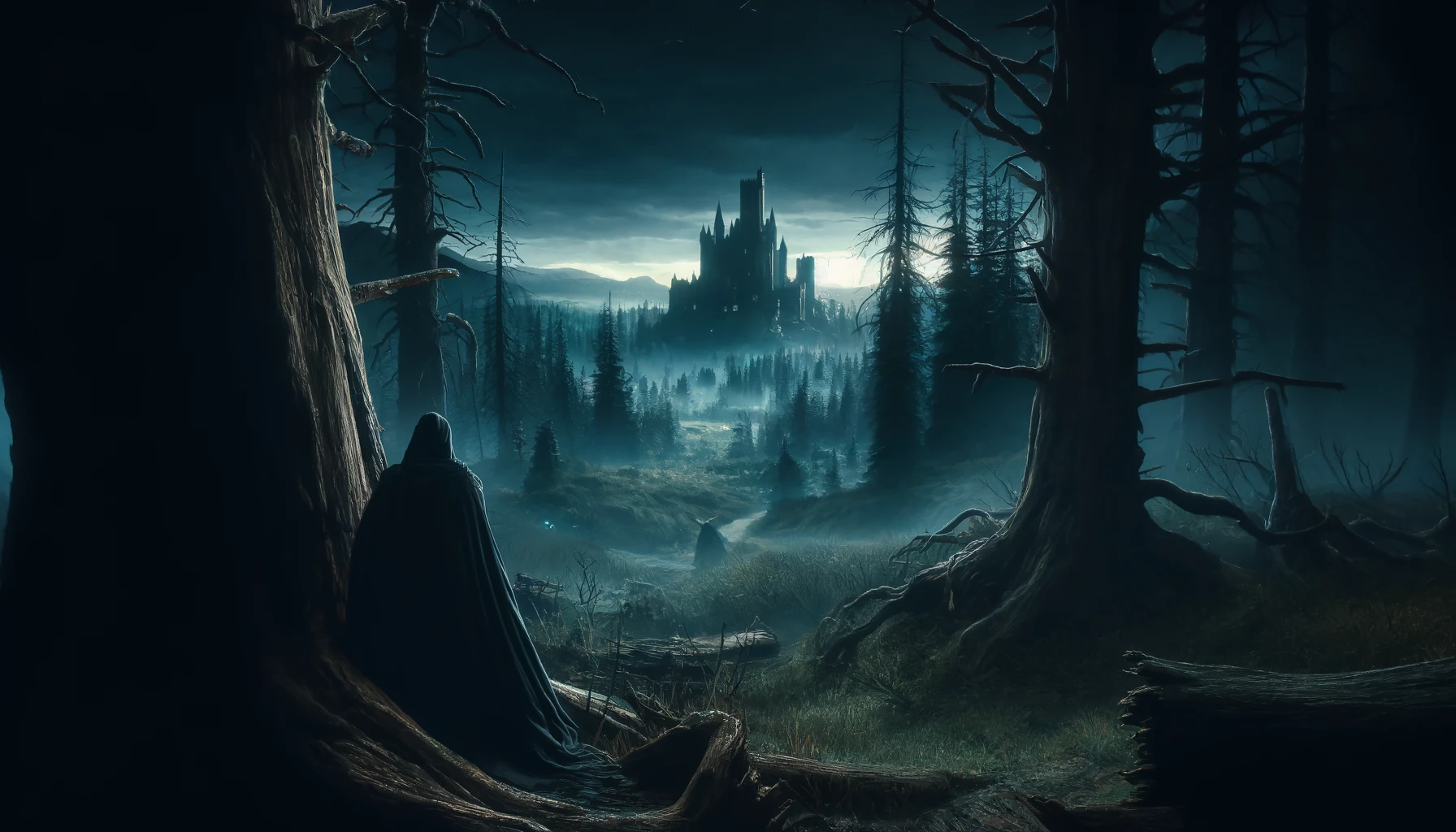Why People Read Dark Fantasy
What do you turn to when you've had enough of the relentlessly cheerful tales? When the constant success of the protagonist, the hero effortlessly conquering adversity, and the world filled with rainbows, butterflies, and unicorns becomes too much? What do you read when it's all just overly bright and endlessly joyful? When it bears no resemblance to reality, not in the slightest?
The Depths of Dark Fantasy
Let’s focus our attention on Dark Fantasy.
Fantasy remains Fantasy, even when imbued with darker elements. However, Dark Fantasy stands apart. It's a distinct subset of Fantasy, enriched with unique themes and motifs waiting to be unearthed and twisted. Dark Fantasy immerses its audience in a shadowy realm, leaving them to question if they’ll ever resurface. (Spoiler: They definitely will. No adept writer would ever let their audience suffocate!)
Yet, when your eyes are overwhelmed with vibrant hues and radiant storytelling, Dark Fantasy offers an escape into endless shades of gray. It immerses you in murky ethics, ambiguous characters, and uncertain conclusions. Indeed, the spectrum of gray is far broader than just fifty shades.
Dark Fantasy demands coherence in its narrative. This genre doesn't aim to uplift but rather immerses the reader in a world where magic and mythical beings are common, scaled by the intensity of the fantasy elements. What sets Dark Fantasy apart is its grounding in a stark, often malevolent reality. In real life, people can be inherently self-serving, acquisitive, and susceptible to corruption. Dark Fantasy amplifies these characteristics twofold or threefold, creating a gritty, authentic backdrop.
Governments engage in corruption. Monarchies rule with total control. Democratic systems are swayed by capitalist motivations. Dictatorships impose authoritarian rule. Often, the well-being of the public or the interests of others are overlooked. This subgenre delves into disturbing issues such as slavery, assault, looting, exploitation, terror, and torture, setting the stage for a grim journey.
If you're growing weary of characters effortlessly resolving their issues through magic, leaving everything conveniently resolved, Dark Fantasy offers a stark contrast.
The Harsh Realities of Dark Fantasy
In Dark Fantasy, magic typically embodies corruption or futility. It's widely regarded as "evil," and when wielded, often exacts a steep toll. This cost can be as severe as one's own humanity. Wizards are prone to insanity, either from overwhelming power or merely the prospect of it. Magic here serves darker purposes imaginable, from torture to manipulation. If it isn’t inherently corruptive or costly, it's essentially ineffective. It might only manage minor feats like tying a basic knot or lifting a light object. Or it could manifest as a verbose sword that drives you to insanity with its ceaseless chatter, pushing you to a breaking point.
Don’t overlook the role of sentient magical artifacts. These items often harbor deep resentment, and may even seek the destruction of their creators or users.
Are you weary of religion always portrayed as a bastion of goodness and inspiration? In the realm of Dark Fantasy, religious institutions rarely offer solace or optimism. If the dominant religion isn't steeped in corruption, then its deities likely are. These gods are typically egotistical, indifferent, and aloof, viewing their followers as mere playthings or expendable resources. When a deity does take an active role, it's generally one with malevolent intentions.
Various religious factions might engage in extremism, often driven by a strong desire to convert others or eradicate dissent. Consider the example of Isabella of Castile and her forces. In the realm of Dark Fantasy, there's no such thing as a "benevolent" religion or a "God is benevolent" doctrine.
The undead frequently feature in these narratives—it is a fantasy genre, after all. Eternal rest in a coffin can grow monotonous. More often than not, these creatures will emerge from their tombs to wreak havoc on the living. They might even go as far as establishing their own societies, governing bodies, and ways of life.
Tired of seeing other species depicted as superior in fantasy settings? Dark Fantasy levels the playing field by showing all races as equally flawed. Elves come across as detached, elitist, and indifferent towards other races. Dark Elves embody the archetype of malevolence. Dwarves are reclusive, confining themselves to their mines and remaining indifferent to outside conflicts. Humans are portrayed as corrupt and oppressive. Halflings, along with other susceptible races, are subjugated and enslaved.
The world of dark fantasy teems with fearsome beasts and mythical entities. From the formidable Dire Wolves to fire-breathing Dragons who are far from allies. Creatures such as Aboleths, Basilisks, Gargoyles, and Krakens also populate this realm, each harboring a deadly intent towards any they encounter, particularly the protagonist.
Turning to the protagonist, are you weary of the flawless hero who invariably makes the correct decisions and triumphantly saves the day? Dark fantasy offers a respite with protagonists who are more grounded and easier to connect with. A variety of character archetypes are available, each with their unique set of flaws and complexities. Some display ambiguous or conflicted moral compasses. Others might show little concern for the individuals they rescue. A few are underprepared or lack the necessary skills to conquer their challenges. Occasionally, the chosen one may not be suitable for the task, and at times, they might even succumb to failure.
Endings can occasionally be joyous, provided they align with the narrative. Yet, even these happy conclusions tend not to be excessively elating. In Dark Fantasy, an ending might be grim, horrendous, or even tragic. Nonetheless, it signifies a conclusion.
Some endings are ambiguous, neither particularly positive nor distinctly negative. They simply serve as a resolution, offering closure at most.
Typically, the atmosphere in Dark Fantasy is decidedly somber. The genre experiences its share of peaks and troughs, maintaining a consistent level of somberness that acts to temper the vividness of more colorful narratives.
Conclusion
Dark Fantasy isn't merely an escape from the ubiquitous cheer and light; it serves as a platform to expand and test your creativity. This genre provides a fresh canvas for authors to reimagine familiar tales. Imagine if Gaston and The Beast had a secret scheme that unraveled due to Belle's enchanting influence? Or what if The Wolf and The Witch were in a relentless battle of one-upmanship, each increasingly tainted by their use of dark magic? The narrative possibilities are limitless!
In Dark Fantasy, the narrative shifts focus from decorative embellishments to the core essence of the story, offering a perspective that’s often invigorating for both readers and writers. It’s about seeing things from an alternative angle, delving into the substantive themes posed by the author.
This genre tackles the gritty realities, diving deeper than its light-hearted Fantasy counterparts. It confronts the inherent darkness within us all, presenting it in a raw, unfiltered manner.
So, settle in and strap yourself in; Dark Fantasy is quickly gaining ground as a favored genre in the literary world.



